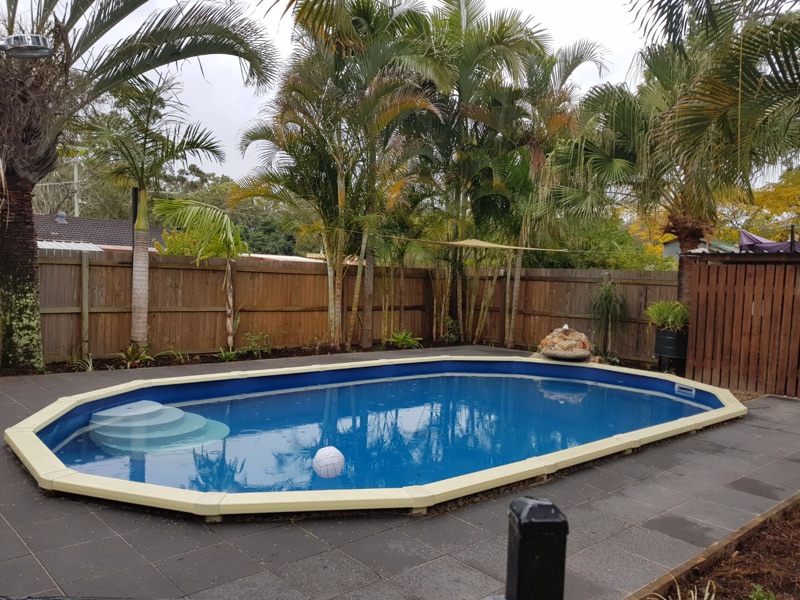Keeping your pool water clean is vital to an enjoyable swimming experience. When water is dirty, it irritates the eyes and the skin. It also increases disease susceptibility because it contains harmful bacteria, mould, and algae.
Here is an overview of chlorine, freshwater, and saltwater pools, including their pros and cons.
Chlorine Pools
Chlorine pools rely on a chemical balance to disinfect and clean pool water. After sampling the water, you can adjust chlorine levels using liquid or tablets. You must also adjust alkalinity, calcium hardness, and pH levels.
The most significant advantage of a chlorine pool is cleanliness. Chlorine is an effective disinfectant that reacts with pool water to form hypochlorous acid, which kills bacteria and prevents algae and mould formation.
On the downside, chlorine pools require regular testing to maintain the recommended levels. If it’s excessive, the chemical irritates the skin and eyes. If the levels are too low, it’s ineffective.
Also, chlorine has a strong smell that affects people with asthma and tends to linger on the skin.
Freshwater Pools
Many people assume that a freshwater pool contains pure, chemical-free water. It doesn’t. Using purified water in a swimming pool courts a disaster, as it provides conducive conditions for algae, bacteria, and mould to thrive.
You must chlorinate freshwater pools regularly to keep the water clean and safe for human use. Therefore, freshwater pools are similar to chlorine pools.
Freshwater pools have lower installation costs than saltwater pools. This is because they don’t use generators. Instead, you only need liquid chlorine or tablets.
Saltwater Pools
Saltwater pools have regular pool water with added salt. They have a generator that splits salt into sodium and chlorine ions through electrolysis. The continuous process means you don’t have to add chemicals regularly to keep your pool clean and chemical-free.
The most significant benefit of saltwater pools is the ease of maintenance. Unlike other pool types, saltwater pools don’t require regular chlorination. Once you add salt, the system balances itself for years.
Moreover, saltwater pools save time. As mentioned, chlorine pools require frequent monitoring to assess the water’s chemical composition. Saltwater pools eliminate the need for frequent tests, saving time, money, and effort.
While excessive chlorine in pool water causes skin and eye irritation, and asthma aggravation, saltwater pools don’t have chlorine’s harmful effects. The water is gentle on the skin and the respiratory system. Although, swimming for extended periods causes eye reddening.
Also, saltwater pools will likely attract more buyers if you decide to sell your home. Prospective owners will pay more for these pools because they are easy to maintain and friendly to the skin.
On the downside, saltwater pools have high upfront costs. The high cost of the electrolysis machine drives up the price.
Wrapping Up
Shape, size, and accessories are the most common consideration factors when constructing a pool. Although many overlook it, water type is also vital. After all, pools must be clean to keep users comfortable and disease-free. If you are considering installing a above ground pools pool, whether it’s a chlorine, salt or freshwater one, Affordable Pools can help you. Contact us today on (02) 8625 3656 for a free quote.

